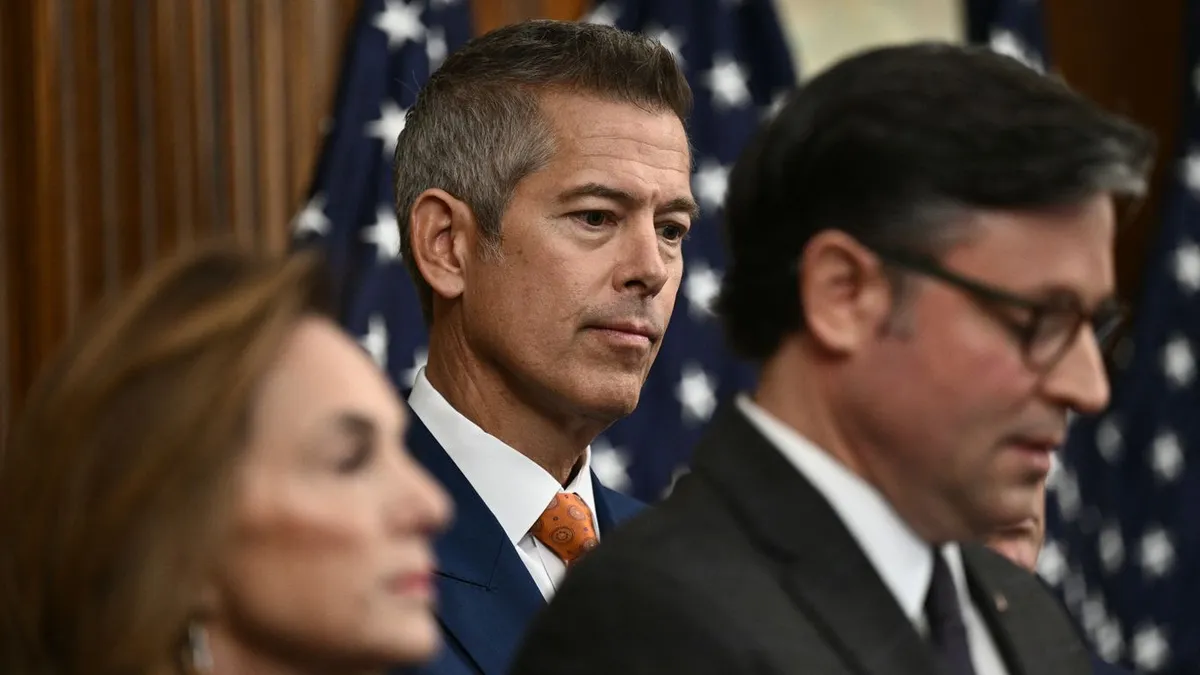
In a troubling development for travelers, air traffic controllers will not receive their first paychecks next week due to the ongoing government shutdown, according to Transportation Secretary Sean Duffy. This financial setback is expected to have significant consequences for air travel, as the industry is already grappling with staffing shortages and operational disruptions.
Travelers have recently experienced increased disruptions at airports, and Secretary Duffy has warned that the situation could deteriorate further. He emphasized that the air traffic control system is crucial for maintaining timely and safe flights. During a briefing alongside House Speaker Mike Johnson (R-La.) and other GOP lawmakers, Duffy expressed uncertainty about the reliability of flight schedules, stating, "I can't guarantee you that your flight is going to be on time. I can't guarantee you that your flight's not going to be canceled." The fate of air travel depends heavily on the commitment and presence of air traffic controllers who are expected to work daily under these challenging conditions.
Starting October 28, air traffic controllers will face their first missed paycheck for the work they completed this month. Duffy noted that their last paycheck, which primarily compensated work done in September, was already reduced, adding to the financial strain. This situation not only impacts current employees but may also deter potential new recruits, as the Federal Aviation Administration (FAA) struggles to improve staffing levels in light of these challenges.
The current shutdown echoes the events of the 2019 government shutdown when federal workers at airports increasingly missed work due to financial distress from unpaid salaries. In response to this crisis, the FAA was forced to limit flights at major airports, showcasing the direct impact of financial instability on air travel operations.
Current air traffic controllers are expressing deep concerns about the situation. One anonymous controller shared with Axios, "Eventually, people are going to have to make human decisions." While many may endure the initial missed paycheck, they predict that the second paycheck could lead to critical financial decisions for employees, potentially affecting their ability to continue working.
The ongoing shortage of air traffic controllers and the subsequent disruptions in air travel are likely to intensify pressure on lawmakers to resolve the shutdown. These staffing issues, compounded by overwork and fatigue, were already pressing concerns before the funding lapse, raising additional safety considerations for the industry.
In his statements, Duffy underscored the paramount importance of safety in air travel. He remarked, "If we don't have the staffing levels in a tower, TRACON, or center, you will see us delay traffic. You will see us cancel flights." During the Thursday press conference, he and his fellow Republicans attributed the shutdown to Democratic lawmakers, igniting a heated messaging battle where each party attempts to shift blame onto the other.
House Speaker Johnson highlighted that, despite the White House's efforts to redirect funds for military and food aid programs—actions that Democrats have deemed illegal—there is currently no available funding that could cover the salaries of air traffic controllers. As this situation unfolds, the risk for increased disruptions in air travel hangs in the balance, emphasizing the urgent need for a resolution to the ongoing government shutdown.
As federal workers express their frustrations over the potential withholding of pay, the air traffic control staff's plight remains a critical point of concern in the broader context of national air travel and safety.